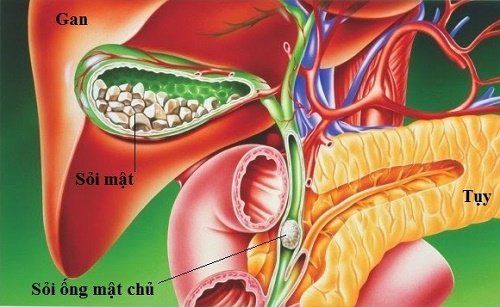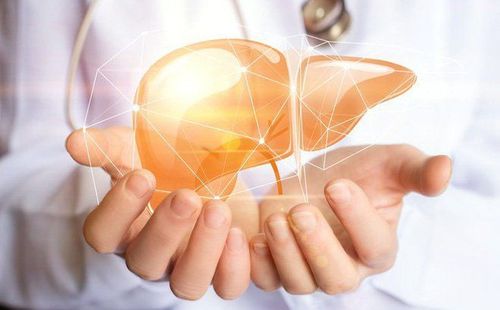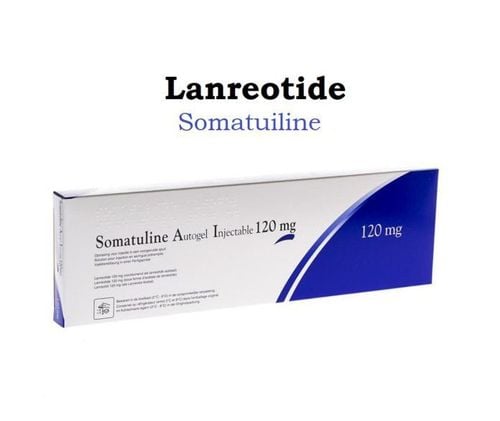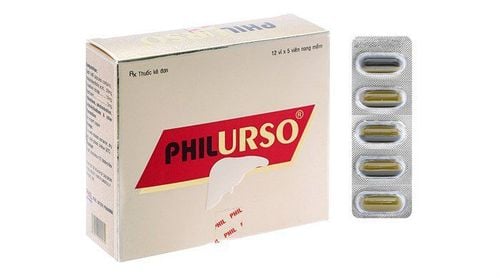This is an automatically translated article.
The article is professionally consulted by Master. BSCK II Phan Thi Minh Huong - Gastroenterologist - Department of Medical Examination & Internal Medicine - Vinmec Da Nang International General Hospital.Risk factors for gallstones are related to human, metabolic, immunological, and lifestyle factors. Symptoms of the disease often recur and are more severe, sometimes leading to complications with gallstones and requiring hospital treatment.
1. What are the risk factors for gallstones?
1.1 Human factors Gallstones commonly occur in groups of patients who share the following characteristics:Gender: More common in women, with the incidence of women being about 2 or 3 times that of men. he. Age: The risk of gallstones increases with age, especially from 40 onwards. Rarely, patients are children, while the most common subjects are between the ages of 60–70. Family history: Gallstones are common in some families suggesting a genetic involvement in the development of the disease. Heredity: The case of patients with certain variants in the carrier gene leads to a greater risk of developing gallstones. Race: Asians have a lower incidence of gallstones than Native Americans and Hispanics. 1.2 Lifestyle-related factors Living habits have been shown to affect the risk factors for gallstones, including:
Inactivity. Vegetarian school. Fasting (causing bile stasis) Sudden weight loss after gastric bypass surgery to treat obesity. Complete parenteral nutrition for a long time. Pregnancy and multiple births. Use birth control pills early and often, or take high-dose estrogen supplements. Effects of certain other drugs. 1.3 Certain diseases Metabolic syndrome, immune system or other diseases are thought to lead to gallstone formation, such as:
Gallbladder cancer: 90% of patients have associated gallstones. . Hemolytic disorders: Hereditary sickle cell disease and sickle cell anemia, or heart valve disease Severe liver failure or cirrhosis: When stones are black or pigmented. Metabolic syndrome, including: Obesity, lipid metabolism disorders, hypertension and type 2 diabetes. Metabolic disorders associated with short bowel syndrome, terminal ileostomy or ulcerative colitis (IBD) Infection or parasites of the biliary tract, eg liver fluke. Constricted biliary tract: There are stones with brown pigment that form in the bile ducts.
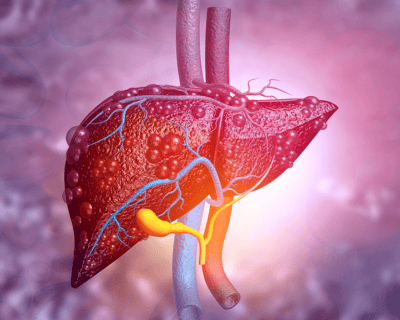
Xơ gan có thể làm tăng nguy cơ mắc bệnh sỏi túi mật
2. Gallstone complications
2.1 Acute cholecystitis After cholelithiasis, 90–95% of patients develop acute cholecystitis secondary to complete obstruction of the gallbladder. The common symptom of acute cholecystitis is mainly abdominal pain that is constant and accompanied by fever, as distinguished from biliary colic that lasts only a few hours.Acute cholecystitis is a serious disease, so the patient should immediately go to the hospital for timely treatment. Depending on each case, the doctor may prescribe:
Infusion and monitoring. Give pain medication combined with antibiotics Surgery to remove the gallbladder containing stones. Medical experts recommend that acute cholecystitis be treated quickly and aggressively, otherwise there is a risk of gallbladder perforation and life-threatening disease.
2.2 There are stones and acute cholangitis When one or more stones fall from the gallbladder into the main bile duct, it will cause obstruction of bile to the intestine, leading to a complication of gallstones, also known as common bile duct stones. The most common external manifestation of this condition is yellowing of the skin and eyes.
Besides, the biliary tract can also become infected causing pain, chills and fever. Acute cholangitis can be fatal if not treated promptly.
2.3 Other Complications Other gallstone complications are also associated with bile abnormalities, such as: empyema, cholecystitis, gallbladder perforation, and even gallbladder cancer. Mirizzi's syndrome indicates biliary obstruction due to stones located in the gallbladder or in the neck duct of the gallbladder, which is one of many complications caused by gallstones. In addition, gallstones also have adverse effects on nearby organs. approach, leading to many complications with the same manifestations of severe abdominal pain, namely:
Acute pancreatitis . Intestinal paralysis. Peritonitis. Sepsis. Liver abscess.

Sỏi túi mật có thể dẫn đến biến chứng viêm tụy cấp
At the same time, you should also develop a weight loss plan (if you are obese) as well as safe and scientific contraception to prevent stones from forming in the bile. For patients, it is necessary to actively treat with stone-dissolving drugs or surgery to avoid leading to dangerous gallstone complications.
To help protect customers' liver and gallbladder health in a comprehensive way, Vinmec International General Hospital has launched Hepatobiliary Screening Packages with different levels of intensive screening, depending on specific needs patient's body.
The Liver and Biliary Screening Package helps customers evaluate their liver and bile function comprehensively, perform tests to help detect liver and bile problems as soon as possible, from which the doctor will give appropriate treatment advice. fit. Screening results are guaranteed to have the highest accuracy when performed by a team of highly qualified and experienced medical doctors; modern and advanced technological equipment; Professional quality service, methodical.
Doctor Huong has over 30 years of experience in the field of Gastroenterology in which with nearly 20 years holding the position of Deputy Department, Head of Department of Hue Central Hospital. Currently, he is a Doctor of Gastroenterology - Gastrointestinal Endoscopy - General Internal Medicine Department of Vinmec Da Nang International General Hospital.
Please dial HOTLINE for more information or register for an appointment HERE. Download MyVinmec app to make appointments faster and to manage your bookings easily.





